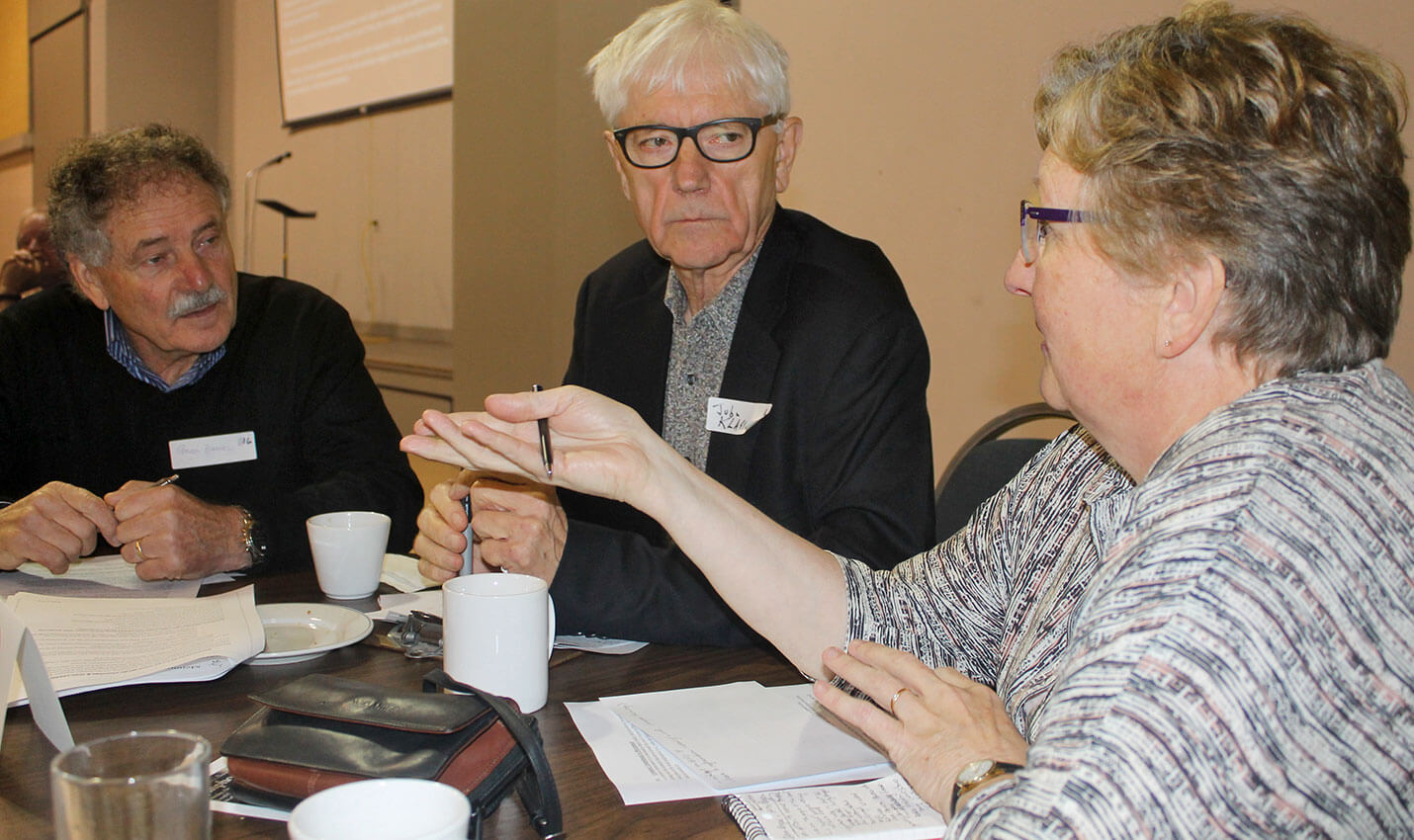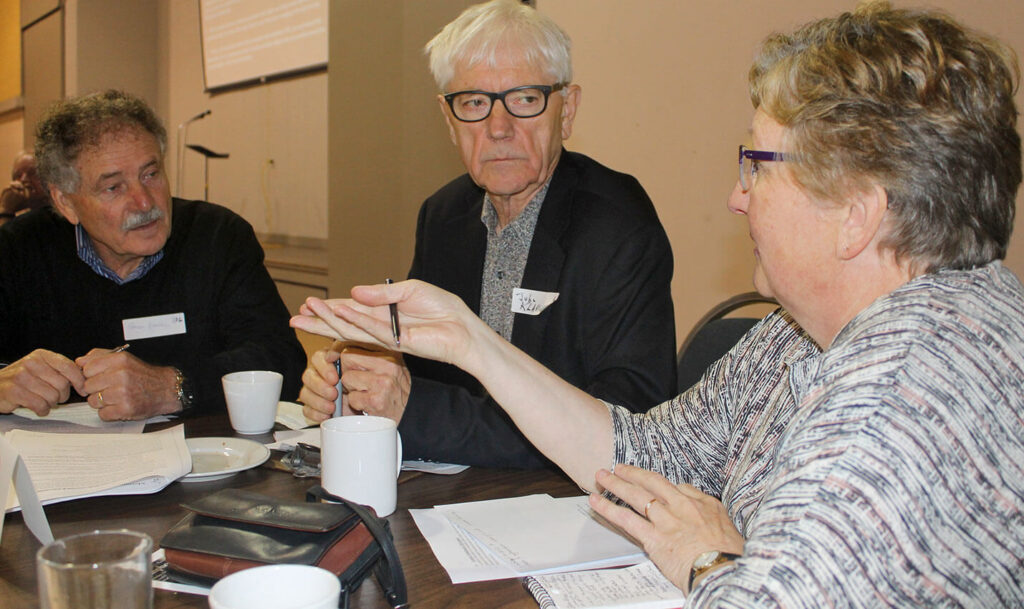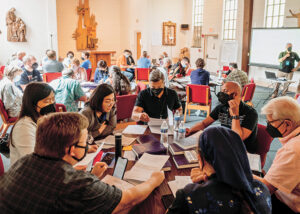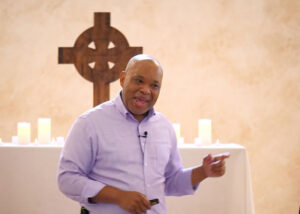“Who is MC B.C.? What kind of family are we and what kind of family do we want to be?”
These questions were posed by Garry Janzen, executive minister of Mennonite Church British Columbia (MC B.C.), to a gathering of 200 billed as “Hearing each other with regard to the BFC [Being a Faithful Church] 7 decision in Saskatoon,” held at Emmanuel Mennonite Church in Abbotsford on Oct. 22, 2016. (See “Delegates vote to allow space for differences,” on the decision at Assembly 2016.)
To which he answered: “We are committed to believing the best of each other, committed to being a safe space, committed to showing the world that it’s possible to move with love, grace and dignity.”
In his introductory remarks, Janzen asked all to pray for wisdom, guidance and grace, to be respectful of one another, and to hear God’s wisdom as the group discussed a potentially divisive issue: the resolution passed at this past summer’s Mennonite Church Canada (MC Canada) assembly. That decision, passed by an 85 percent majority, created space for MC Canada congregations to differ from each other on the issue of committed same-sex relationships within the church, putting them at variance with the Confession of Faith in a Mennonite Perspective that affirms only one man/one woman marriage.
Participants were mixed randomly for prayer and discussion around tables, then they were each was given two minutes there to share their own feelings on the issue and how their congregation might be leaning, if known.
An open mic time followed, revealing a wide variety of opinions on what the BFC7 resolution would mean for MC B.C. congregations. Several people spoke in favour of upholding the traditional view of marriage, while others spoke in favour of wider inclusiveness, with many voices calling for compassion and understanding:
- “It saddens me that we’ve spent so many years on this. Every human has choice. The Bible is clear on the subject.”
- “If gay couples are committed to Jesus Christ, let them serve.”
- “If, because of human perspective, we say that gay marriage is biblical, if the choice is to go our separate ways, I’d support that.”
- “Every decade has its issue. If the best we can do is drive people away from the church, do we want to be part of that? My appeal is: God help us to be inclusive.”
- “So many are theologizing from our own experience exclusively. This is the Word of God. Let us seek truth with unity around that truth.”
- “This has affected every denomination. We need to be more discerning of each other. . . . Err on the side of mercy than of judgment.”
A group of 11 pastors then publicly presented a response to BFC7 on behalf of their congregations’ leadership: “We believe that with BFC7’s adoption, MC Canada has fundamentally changed our Confession of Faith and has adopted a new hermeneutic that we are opposed to, and is incompatible with our MC B.C. covenant [signed in June 2007].”
They outlined two possible options:
- “Scrap MC B.C.’s re-covenanting document of 2007—essentially what BFC7 does—and adopt BFC7, and then make our decisions based on that.”
- Or, “We believe that our MC B.C. covenant is clear that it is those who distance themselves from the Confession of Faith who are distancing themselves from MC B.C., and called to step out of formal relationship with us.”
Their document states that the national adoption of BFC7 is a faulty interpretation of Scripture and that, in adopting it, MC Canada distanced itself from the common Confession of Faith and MC B.C.’s covenant. Therefore, the pastors propose that the area church maintain a unity separate from that of MC Canada.
Participants then brainstormed other options in moving forward:
- Hold a referendum of all MC B.C. members.
- Accept BFC7 and allow LGBTQ members, but not accept pastors in same-sex relationships or who perform same-sex marriages.
- Delay a decision with more time for processing.
Gerd Bartel of Peace Mennonite Church in Richmond, urged the body not to rush into a decision when he said: “[A proposal] coming to us at this time is too early in our process. If we can work together, there must be compromise in that. There are absolutely no easy answers.”
Another gathering is called for Jan. 21, 2017, to determine what proposal to bring to the area church annual general meeting in February.
See “Finding a way to be together,” a report on a previous pastors-only meeting about BFC7.








Leave a Reply
You must be logged in to post a comment.